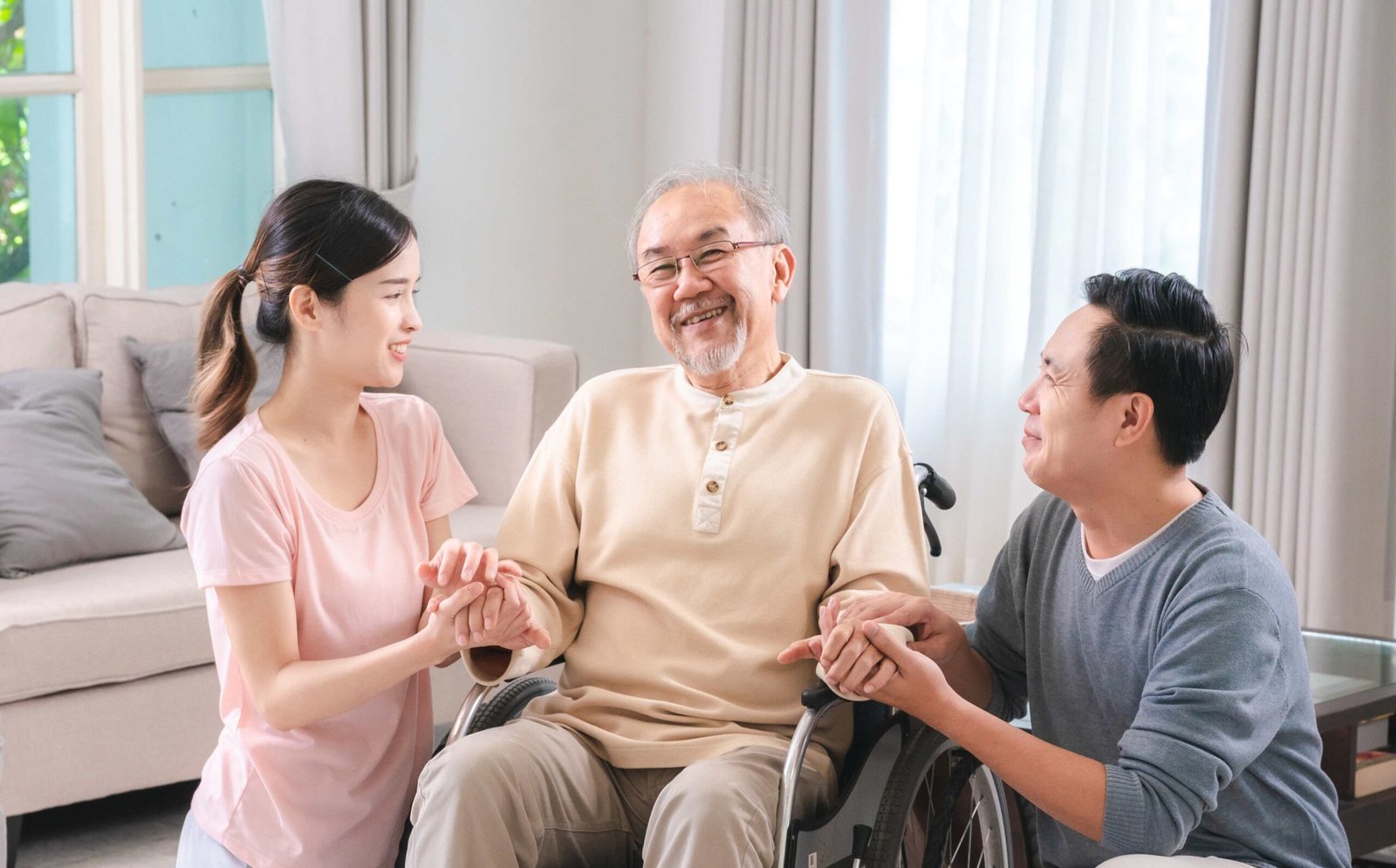Navigating the Emotional Journey in Hospice Care
When faced with the challenges of hospice care, it is important to understand the emotional journey that accompanies it. Grief is a natural response to loss, and it manifests differently for each individual. In hospice care, both patients and their loved ones may experience a range of emotions as they navigate this difficult time.
Understanding the Grief Process
Grief is a complex and personal experience that encompasses a wide range of emotions. It is important to recognize that grief is not a linear process and can vary in duration and intensity. The grieving process often involves stages such as denial, anger, bargaining, depression, and acceptance, though individuals may not experience them in a strict sequence.
It is crucial for individuals in hospice care to understand that their feelings of grief are valid and normal. Hospice care providers are trained to recognize and support individuals through the grieving process, offering compassion and empathy during this challenging time.
Importance of Emotional Support in Hospice Care
Emotional support plays a vital role in hospice care, providing comfort and solace to patients and their families. Hospice care teams are equipped with professionals who specialize in offering emotional support and counseling services. These professionals help individuals navigate their emotions, cope with grief, and find healthy ways to express and process their feelings.
In addition to professional support, the presence of loved ones and a strong support network can significantly contribute to emotional well-being in hospice care. Family members and friends can offer a listening ear, a shoulder to lean on, and companionship, creating a sense of comfort and understanding during this emotionally challenging time.
Hospice care providers also understand the importance of addressing the emotional needs of family members and loved ones who may be grieving alongside the patient. Open communication and emotional support are integral components of hospice care, ensuring that everyone involved feels heard, supported, and respected.
By recognizing and addressing the emotional journey of hospice care, individuals and their loved ones can find solace and support during this challenging time. Hospice care providers are dedicated to providing compassionate care that encompasses not only physical well-being but also emotional well-being, ensuring that individuals receive the support they need as they navigate the complexities of grief.
Coping Strategies for Grief and Loss
Dealing with grief and loss is an integral part of the emotional journey in hospice care. It’s essential to find healthy coping strategies to navigate through these challenging times. Here are two effective coping strategies that can provide comfort and support during the grieving process.
Expressing Emotions
Expressing emotions is a crucial step in coping with grief and loss. It allows individuals to acknowledge and process their feelings, promoting healing and emotional well-being. There are various ways to express emotions in a healthy manner, including:
- Journaling: Writing down thoughts and emotions can provide a release and offer clarity during the grieving process. Keeping a journal allows individuals to reflect on their feelings and experiences, providing a sense of catharsis.
- Art Therapy: Engaging in artistic activities such as painting, drawing, or sculpting can be therapeutic for individuals experiencing grief. Creating art allows for self-expression and can help individuals explore their emotions in a non-verbal way.
- Physical Activity: Engaging in physical activities like walking, jogging, or yoga can help release built-up emotions and reduce stress. Exercise stimulates the release of endorphins, which can improve mood and provide a sense of well-being.
Seeking Counseling and Support Groups
Seeking professional counseling or joining support groups can be immensely beneficial for individuals coping with grief and loss. These avenues provide a safe and supportive environment to share experiences, emotions, and concerns with others who are going through similar experiences.
Counseling sessions with trained therapists can help individuals work through the complex emotions associated with grief. Therapists can provide guidance, coping strategies, and tools to navigate the grieving process effectively. Support groups offer a sense of belonging and understanding as individuals can connect with others who share similar stories and emotions.
| Coping Strategy | Description |
|---|---|
| Expressing Emotions | Acknowledge and process emotions through journaling, art therapy, and physical activity. |
| Seeking Counseling and Support Groups | Engage in professional counseling sessions or join support groups to share experiences and receive guidance. |
By engaging in these coping strategies, individuals can find solace and support as they navigate the emotional journey of grief and loss in the context of hospice care. It’s important to remember that everyone grieves differently, and finding the right strategies that resonate with each person’s unique needs is crucial.
Finding Solace in Hospice Care
When facing the emotional challenges of grief, hospice care can provide a supportive environment to find solace and comfort. Two important aspects of hospice care that contribute to this solace are the role of palliative care and the creation of a comforting environment.
The Role of Palliative Care
Palliative care plays a vital role in hospice care by focusing on relieving pain, managing symptoms, and improving the overall quality of life for individuals with serious illnesses. It emphasizes a holistic approach to care, addressing physical, emotional, and spiritual needs.
In hospice settings, palliative care professionals work closely with patients and their families to develop individualized care plans that prioritize comfort and well-being. These care plans may include pain management techniques, medication adjustments, and complementary therapies tailored to meet the unique needs of each person.
Palliative care in hospice fosters open communication between patients, families, and healthcare providers. It ensures that goals of care are aligned with the patient’s preferences and promotes a sense of control and dignity during the end-of-life journey.
Creating a Comforting Environment
Creating a comforting environment is an essential aspect of hospice care that aims to provide emotional support and alleviate distress for patients and their loved ones. This environment is designed to promote peace, tranquility, and a sense of security.
In hospice facilities, various strategies are employed to create a comforting atmosphere. This may include soothing decor, soft lighting, and comfortable furnishings that contribute to a calm and serene ambiance. Private spaces are provided to allow for personal reflection and privacy.
In addition to the physical environment, emotional support is a fundamental component of creating comfort. Trained hospice professionals, including social workers, counselors, and chaplains, are available to provide emotional support and guidance to patients and their families. These professionals help individuals navigate the complex emotions that accompany grief and loss, offering a safe space for expression and understanding.
By combining the principles of palliative care and a comforting environment, hospice care aims to provide solace during the emotional journey of grief. It offers a compassionate and supportive setting where individuals and their loved ones can find comfort, receive specialized care, and navigate the challenges of end-of-life experiences.
Communicating in Hospice Care
Effective communication plays a vital role in hospice care, fostering understanding, empathy, and support for individuals and their families. In this section, we will explore two important aspects of communication in hospice care: honest and open conversations, and addressing end-of-life wishes.
Honest and Open Conversations
Honest and open conversations are essential in hospice care, as they provide a platform for individuals and their loved ones to express their thoughts, fears, and concerns. These conversations create an environment of trust and allow for the sharing of emotions and experiences.
In hospice care, healthcare professionals strive to create a safe space where individuals feel comfortable discussing their fears, hopes, and goals. Open communication helps the healthcare team understand the individual’s unique needs and preferences, enabling them to tailor care accordingly.
Family members and loved ones also benefit from honest and open conversations, as it allows them to gain insight into the individual’s wishes, provide emotional support, and actively participate in decision-making processes. This open dialogue helps everyone involved navigate the emotional journey of hospice care together.
Addressing End-of-Life Wishes
Addressing end-of-life wishes is a crucial aspect of communication in hospice care. It involves discussing and documenting the individual’s preferences regarding their care, treatment options, and quality-of-life decisions. These conversations ensure that the individual’s wishes are respected and honored during their end-of-life journey.
Healthcare professionals play a vital role in facilitating these discussions, encouraging individuals to express their desires and helping them understand the available options. By addressing end-of-life wishes, individuals and their families can find solace in knowing that their values and choices will guide their care.
Table: Importance of Communication in Hospice Care
| Importance | Description |
|---|---|
| Facilitates understanding | Open and honest communication promotes understanding between individuals, their families, and healthcare professionals. |
| Provides emotional support | Communication allows individuals and their loved ones to express their emotions, fears, and concerns, providing a sense of support and empathy. |
| Guides decision-making | Discussing end-of-life wishes helps individuals make informed decisions about their care, ensuring their preferences are respected. |
| Fosters a sense of control | Open communication empowers individuals by allowing them to actively participate in their care and have their voices heard. |
By fostering honest and open conversations and addressing end-of-life wishes, hospice care providers create a compassionate and supportive environment for individuals and their families. These essential communication practices ensure that the emotional needs, desires, and preferences of individuals in hospice care are acknowledged and respected.
Embracing Compassionate Care in Hospice
When it comes to hospice care, compassionate and personalized support is of utmost importance. Serenity Hospice, located in Simi Valley, CA, understands the unique needs of individuals and their families during the emotional journey of coping with grief and finding solace. This section explores two key aspects of compassionate care provided by Serenity Hospice: personalized care plans and ensuring dignity and respect in end-of-life care.
Personalized Care Plans
At Serenity Hospice, each individual’s journey is unique, and personalized care plans are designed to address their specific needs. The interdisciplinary team, consisting of healthcare professionals, works closely with patients and their families to develop a comprehensive care plan that focuses on physical, emotional, and spiritual well-being.
These personalized care plans take into account the individual’s medical condition, symptoms, pain management, and personal preferences. By tailoring the care plan to the individual’s unique needs, Serenity Hospice ensures that every aspect of their care is thoughtfully considered and provided with compassion.
Dignity and Respect in End-of-Life Care
Serenity Hospice is committed to providing end-of-life care with the utmost dignity and respect. The team recognizes the value of preserving the individual’s autonomy and ensuring their comfort, even during challenging times. By fostering an environment of empathy and understanding, Serenity Hospice ensures that the individual’s wishes and preferences are honored throughout their journey.
In addition to physical care, Serenity Hospice focuses on emotional and spiritual support, helping individuals and their families navigate the complexities of grief and loss. The team provides compassionate counseling and guidance, allowing individuals to express their emotions, address fears and concerns, and find solace during this difficult time.
By embracing compassionate care, Serenity Hospice in Simi Valley, CA, strives to make a meaningful difference in the lives of individuals and families facing the emotional challenges of hospice care. Through personalized care plans and a commitment to dignity and respect, Serenity Hospice supports individuals in finding solace and comfort during their end-of-life journey.
Building a Support Network
When facing the emotional journey of hospice care, building a strong support network can make all the difference. Having the involvement of family and loved ones, as well as utilizing the resources provided by hospice, can provide comfort and assistance during this challenging time.
Involving Family and Loved Ones
In hospice care, involving family and loved ones is essential for creating a supportive environment. These individuals can offer emotional support, companionship, and help with practical tasks. By including them in the care process, patients can feel a sense of comfort and connection, knowing that their loved ones are by their side.
Family and loved ones can assist with various aspects of care, such as providing companionship, helping with personal care, and assisting in medication management. Their presence and involvement can help alleviate the emotional burden and provide a source of strength and comfort for the patient.
Utilizing Hospice Resources
Hospice care providers offer a range of resources and support services to help patients and their families navigate the emotional journey. These resources can include counseling services, support groups, and educational materials.
Counseling services provided by hospice care teams can offer emotional support and guidance to patients and their families. Through one-on-one sessions, individuals can express their feelings, fears, and concerns in a safe and supportive environment. Counselors can provide coping strategies, help manage grief, and offer assistance in navigating the complex emotions that arise during this time.
Support groups facilitated by hospice care providers bring together individuals facing similar challenges. These groups provide a space for sharing experiences, offering mutual support, and learning from others who are going through a similar journey. Support groups can be a source of comfort, validation, and a reminder that no one is alone in their grief.
Additionally, hospice care teams can provide educational materials and resources to help individuals understand the emotional aspects of hospice care. These materials may include brochures, books, and online resources that provide information on coping strategies, grief support, and finding solace in the midst of loss.
By involving family and loved ones and utilizing the resources provided by hospice care, individuals can build a support network that offers comfort, understanding, and guidance throughout the emotional journey. This network can provide the necessary emotional support to cope with grief and find solace during this challenging time.







